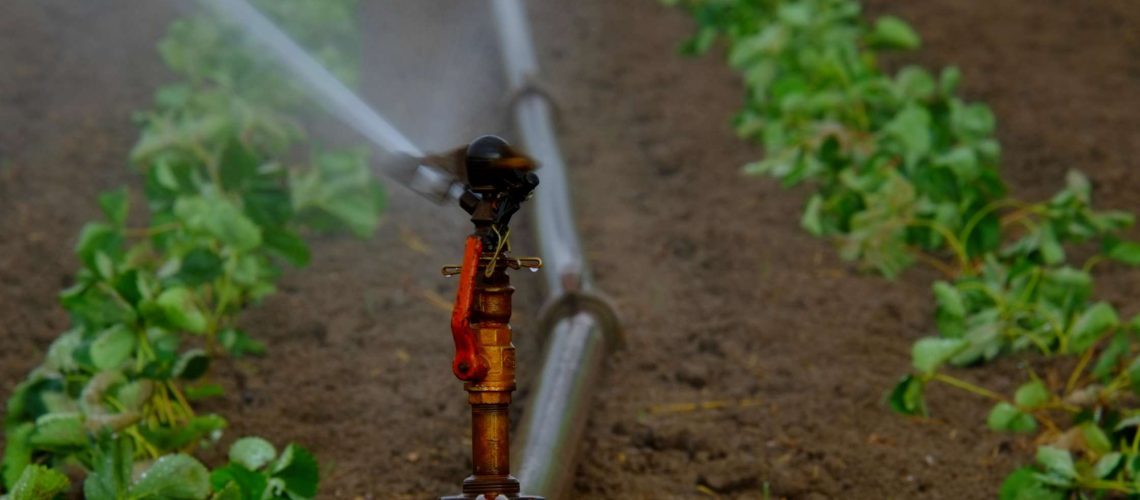Farm irrigation systems might seem simple at first glance, but they often encounter problems that lead to failures. Issues such as inaccurate timing and poor sensor calibration can result in costly watering mistakes. Rapid weather changes and varying crop needs make effective management even more challenging.
If you haven’t considered how these factors are interconnected, you may overlook important insights that could enhance your irrigation strategy. What if the solution involves more than just addressing a single issue?
1. Irrigation Scheduling Challenges
Irrigation scheduling challenges can set you back if you’re not careful. Getting the irrigation timing wrong can lead to overwatering or underwatering, hurting crop health.
Overwatering wastes water and increases costs, while underwatering can reduce yields. To tackle these issues, you should invest in scheduling technology that enhances sensor accuracy.
Accurate sensors provide real-time data on soil moisture levels, helping you determine when to irrigate and how much water to apply. This promotes water conservation and ensures your crops receive the right amount of moisture at the right time.
2. Limitations of ET Control Systems
While investing in irrigation scheduling technology can enhance crop management, ET control systems have limitations.
You may experience ET system limitations due to accuracy issues stemming from unpredictable weather impact factors. Weather can change rapidly, affecting evaporation and transpiration rates, which your system may not accurately capture.
Additionally, crop coefficient variability can lead to discrepancies in water needs, making precise scheduling challenging.
Sensor integration challenges can also arise when combining ET systems with soil moisture sensors, potentially leading to device miscommunication.
These factors can hinder your ability to optimize irrigation effectively, resulting in overwatering or underwatering, ultimately impacting your crop yield and quality.
3. Soil Moisture Measurement Errors
Soil moisture sensors are crucial in optimizing irrigation, but measurement errors can lead to significant issues. If you don’t use proper sensor calibration techniques, your readings may be inaccurate, resulting in poor irrigation decisions.
Moisture retention factors and soil type influence how moisture is held, which can complicate readings further. Seasonal variability impacts soil moisture levels, meaning what worked last season might not apply now.
To mitigate these errors, focus on effective sensor placement strategies; placing sensors too deep or too shallow can skew results. Addressing these issues enhances your irrigation system’s reliability, ensuring your crops receive just the right amount of water for optimal growth.
4. Benefits of Combining Techniques
Combining techniques like evapotranspiration (ET) control systems and soil moisture sensors can significantly enhance irrigation efficiency.
By integrating these technologies, you’ll gain access to real-time data analytics that help you make informed decisions. Sensor integration allows you to monitor soil moisture levels accurately, reducing the risk of overwatering or underwatering, which can harm crop health.
With technological advancements, you can tailor your irrigation schedules to meet specific crop needs, ensuring optimal growth conditions. This combination leads to more precise irrigation timing and improved resource management.
Ultimately, you’ll save water and boost yields, making your farming practices more sustainable and profitable. Embracing these methods is key to thriving in modern agriculture.
5. Importance of Effective Management
Effective irrigation system management is crucial for maximizing crop yields and minimizing costs. Implementing effective irrigation strategies can optimize water conservation and ensure your crops receive the right amount of moisture.
Utilizing sensor technology enhances management practices. It allows you to monitor soil moisture levels accurately and adjust irrigation schedules accordingly. This precision reduces overwatering and underwatering, both of which can negatively impact crop yield.
Regularly reviewing and refining your management practices saves resources and boosts overall productivity. Staying informed about the latest advancements in irrigation technology can further elevate your approach, helping you achieve sustainable farming and ultimately, a thriving harvest.
Optimize Your Farming Success with Southwest Florida Service & Supply
Precision and reliability are essential in agriculture. Southwest Florida Service & Supply is a leading provider of tailored solutions for agricultural irrigation, well water systems, trailer shop repair, and backflow prevention. Since 1998, we have proudly served the community and are committed to excellence in all we do.
Our understanding of water management ensures that your fields are not left as swamps or deserts but become thriving landscapes. We offer the meticulous care needed to keep your crops flourishing. Our team of skilled professionals is dedicated to optimizing agricultural operations, enhancing productivity, and protecting your investment.
Partner with us for peace of mind, knowing that your irrigation systems are in expert hands, helping you achieve the highest possible yields. Embrace a future filled with growth and prosperity with Southwest Florida Service & Supply by your side.

